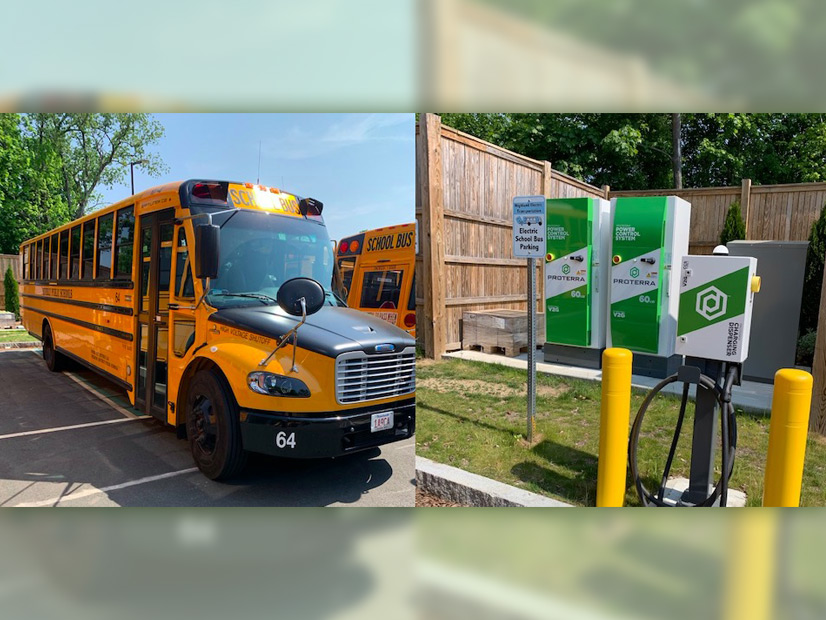The city of Beverly, Mass., is advancing its fleet-wide electric school bus changeover for the district in July with the addition of its second of 48 buses.
Beverly tested its first electric school bus starting last October after entering into a lease agreement with Highland Electric Transportation. The company helps school districts afford electric school buses by leasing them out annually and using vehicle-to-grid (V2G) incentives.
Highland purchases all the power for the buses and uses V2G technology to sell power back to the grid when demand is high. Payments from utilities go back to the school district to offset the upfront cost of electric buses.
Dana Cruikshank, director of transportation for Beverly Public Schools, told NetZero Insider he could “smell the difference” between the district’s electric bus and its traditional diesel buses. Battery powered electric buses reduce the amount of emissions school kids are exposed to, and they are quieter than traditional combustion engines.
“The elementary school kids call it the ‘magic bus,’” Cruikshank said, because the bus driver and students can have conversations without yelling over the sound of a traditional combustion bus engine.
The school bus charges overnight on a smart charging system in Beverly’s bus yard that powers on when the buses are below 100%. It takes the bus three hours to charge completely, and it will run for 125 miles before it needs to charge again.
The lease payment includes the cost of electricity and repairs, which “makes the buses affordable to us,” Cruikshank said. “We’re not a huge district.”
While electric buses are more expensive to purchase than diesel buses, lower maintenance and operations costs make the transition more affordable in the long term for school districts, Cruikshank said.
“Anything new we purchase will be electric,” he added.
The Beverly School District’s electric bus project was Highland’s first as a company. And because it has been successful, the project “put us in a position to do much larger projects,” said Matt Stanberry, managing director of market development at Highland.
Montgomery County’s public schools in Maryland struck a deal with Highland in February to lease 326 buses over four years and eventually replace its entire 1,422 bus fleet, making it largest purchase of electric school buses in the U.S.
“We’re really happy about how the project has unfolded in Beverly,” Stanberry told NetZero Insider. “They are in a good place for electrification for the school district going forward.”
The V2G capability adds a “new, interesting and important value stream for schools,” he added, because it lowers the cost for the electric bus service.
Highland is also installing a 360-kW fast charging station in Beverly that will go live next month. The station will be the first of its kind at that power rating, according to Stanberry.
FERC Order 2222 opened value streams by enabling distributed energy resource (DER) aggregators to participate in wholesale electric markets.
“That’s what we need to see from ISO-NE,” Stanberry said. “But we need a continuous participation model that gives resources credit for their value in reducing load and generating power.”
Highland is working to maximize all the resources school buses can provide to lower the cost of electrification for schools.
There are more than 480,000 school buses in the U.S., which adds up to a lot of battery storage capability.
FERC Order 2222 should allow DER resources to adjust their energy offers closer to real time, so they don’t face penalties, Stanberry said. “Getting those details right is really important to us.”




